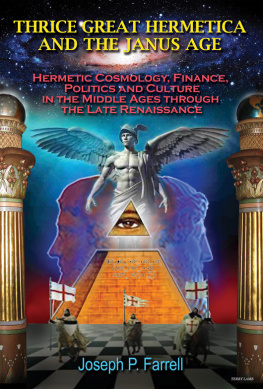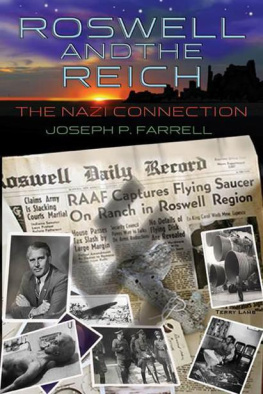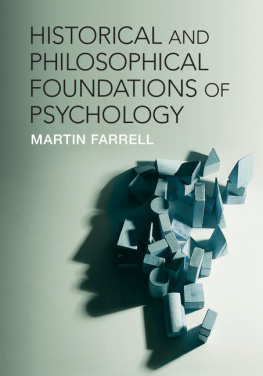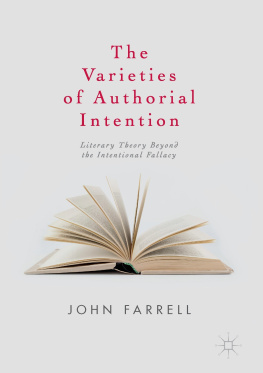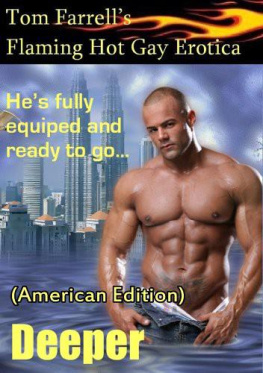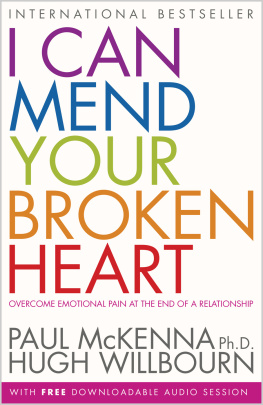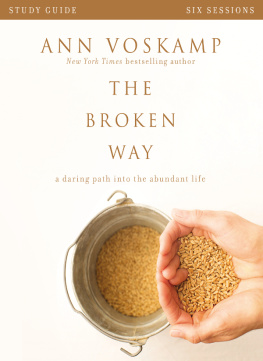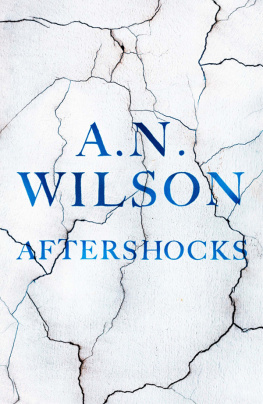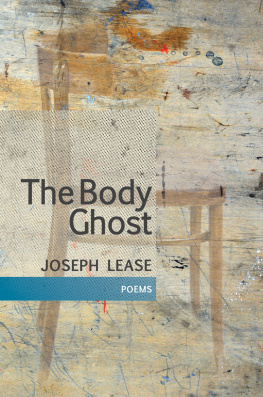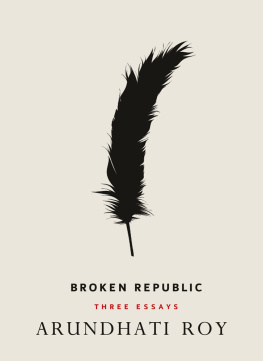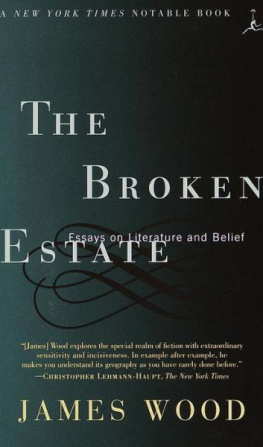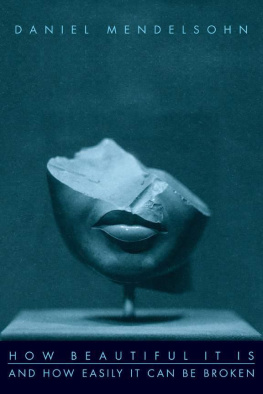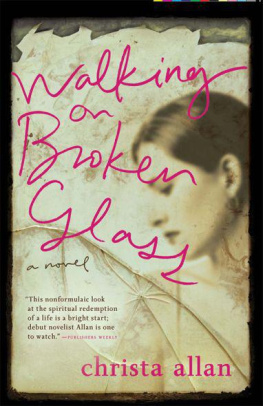The Broken Book
Fiona Farrell
for Christchurch
The walks
May 2011
September 2009
Menton, September 2009
Dunedin, May 2010
Christchurch, September 2010/February 2011
May 2011
The quake poems
Preamble
from preambulare: to walk before
May 2011
Last year I was writing a book. It was about walking: a travel book. My editor at Auckland University Press, Anna Hodge, had suggested it. My previous book had been a volume of poems, with copious notes, about time spent in Ireland. She thought travel suited me.
I decided Id write about walking. It would be a simple book. What could be simpler than one foot in front of the other? Id write about travelling on foot. It is, in my opinion, the very best mode of travel. So slow, so steady. The world slips into close focus: the few metres ahead, the next climb, the next corner, the row of ants marching across a sun-warmed step, the herd of caramel-coloured cows grazing in a buttercup field, heavy bells ringing.
Travelling by car is a swift swoop, suited to men with appointments elsewhere. Its fierce and competitive out there on the highway: people, perfectly pleasant no doubt when encountered on foot, become frantic. I become frantic. Stuck behind a campervan crawling up the hill into town, I can feel a ridiculous impatience: Come ON! Pass the truck! Youve HEAPS of room and this is the only place you can get past for MILES! I am neither a good nor decent person driving a car. Some kind of fantasy takes over my head and hands: a person who rally-drives the Haute Corniche, wearing fingerless mittens for extra grip on the custom-made wheel. I have no idea where this person exists when Im not in a car. I have never driven in a rally, nor wish to, and my notion of hell would be to stand on an embankment watching cars racing round bends and skidding into gravel. You cant even tell who is winning. So why is it, as I take the wheel of our Subaru to pop into town to pick up a bottle of milk and the paper, that this impatient neurotic competitive individual slips into my skin and fastens her helmet? Over unlikely greying hair? Who the hell is she? She is quite literally driven. Overwhelmed by the urge for speed, even if the object of that speed is a litre of trim, not the magnum of champagne gushing orgasmically over the losers.
When I travel on foot, I am calm. I am kind. I talk to strangers, enjoying their company. I am attentive to small children. I am not driven, but peaceably ambling to the rhythms of nature. I am rambling. My feet ramble. My mind rambles. The sun is on my face, the wind in my hair. The fantasy figure who slips into my skin then is romantic: someone in a high-waisted dress walking across heather-clad moorland with billowing clouds overhead. Shes a pilgrim, a poet, someone from history or fairytale, setting out to seek her fortune.
Shes also a relatively recent fantasy. For much of my life, walking was done from necessity. We walked when we were children because we didnt have a car until I was ten. We walked to school, which was just next door anyway, through a loose place in the corrugated-iron fence at the end of our section. A quick dash from the warm kitchen, clutching a piece of toast in one hand as the bell rang, through the fence, and I could be lined up with the others, all ready for Colonel Bogey and the march to class. (This has left me incapable of getting anywhere else on time. I still adhere to the belief that I can be eating toast and be wherever I am expected to be in the twinkling of an eye, like Superman. Its a dreadful legacy.) On Friday nights, my family walked downtown for the groceries and the library books, puffing back up the hill at nine oclock with a pushchair loaded with supplies and kids demanding to be carried. At weekends, we didnt walk for recreation. Instead, my sister and I were taken out to visit my aunt and uncle on my dads bike: a big heavy Raleigh with a seat on the carrier and another on the bar. Cycling was perfection: Dad puffing as he pedalled up Holmes Hill between high hedges of fluffy white hawthorn and the sensation of speed as we swooped back down in the evening, Dad cheerful after several hours of whisky and cribbage, the wind driving my hair back from my face on the way home to Sunday tea proper shop-sliced white bread with raspberry jam and whipped cream.
Cycling was much to be preferred to walking. Walking was slog. A bore. A tedious tramp with my sixth-form geography class to view a glacier and hanging valleys and other dull geological features, goaded on by a young man whose muscled thighs strained at the khaki of his rangers shorts. He looked like a boy scout. I loathed his silly legs, loathed the dripping bush, loathed the muddy track where my sneakers slipped and stuck. Loathed the glacier when we finally reached it, which was grubby and not, as I had hoped, pristine icy white. Loathed the clammy grip of my borrowed plastic parka. Loathed the way my legs ached that evening and for several days afterward.
What I wanted was a car, and when I was twenty-one and married we bought one. A grey Mini-Minor, in which we hurtled along English motorways, our friends pallid in the back seat as we raced past the spinning hubcaps of Eurolorries or attempted to change lanes round Marble Arch. I adored it, as I have loved all the cars Ive owned since: the crimson Fiat with the kiddie seats in the back, the Ford station wagon that accommodated the familys bikes and tents, the beige 1967 Cortina of divorce, the trusty Subarus that now churn doggedly each winter through the snow on the hilltops of the Peninsula and bring us safely home to Otanerito in the valley.
It was not until I was middle aged that walking walking as travel, walking for miles really came into its own. When I was forty-eight, I went to live in Menton for six months. A fellowship took me to work for a year in the garden shed of the villa in which Katherine Mansfield had stayed for a few months and written Miss Brill and The Daughters of the Late Colonel. We lived in an apartment overlooking the town, up a steep little hill. We didnt have a car.
We walked instead. A network of tracks lined the hillside behind the town, the shadowy lines of the old footpaths that preceded the corniches, low, medium and, above them all, the multi-laned high road into Italy, flung across the ravine on towering trestles. The tracks marked old routes between tiny villages, overgrown olive groves, chapels with locked doors and leaves like flakes of dead skin piled deep on the porch. They wound between the stone walls of pastures carved from the steep limestone slopes and the rubble of former farm buildings. They zigzagged at a manageable slant, trodden into the ground by people who had had no choice but to walk and wanted to make as little necessary effort as possible. Sometimes there were flights of broad shallow steps, each stone tread worn to a smooth declivity at its centre by the passing of centuries of mule trains carrying salt from the coast to the interior. We followed in their hoofprints, up and down the hillsides, picking twigs of thyme and rosemary to flavour our casseroles. We walked between the little villages, finding the contour, approaching not with the roar of the sports car taking out each corner on the way up, but quietly, discreetly, past vegetable gardens where the tomatoes were strung on twine and the peas clung to crisscrossed bamboo stakes. When we became hot and sweaty, we dipped our hands in the laundry troughs set with such ingenuity to capture the flow of some mountain torrent rushing headlong to the Mediterranean far below. On its way, it had been briefly diverted to the task of cleaning sheets and bearing away the soapy sediment of living. There were sometimes towels and shirts strung on the wire fences, though the old communal customs were clearly giving way to whiteware and individual clothes driers.


